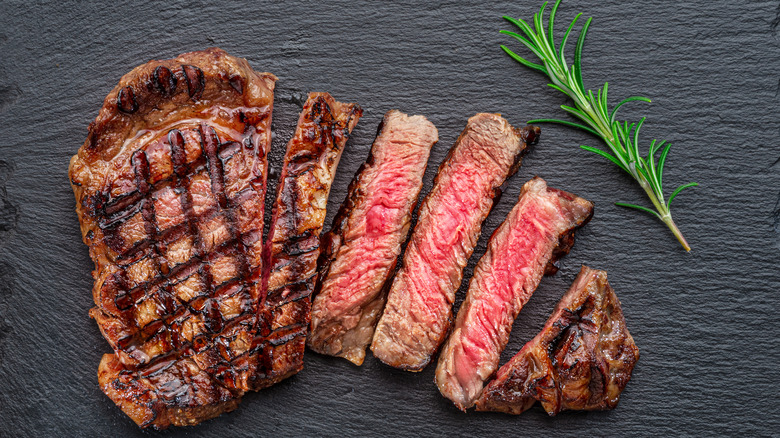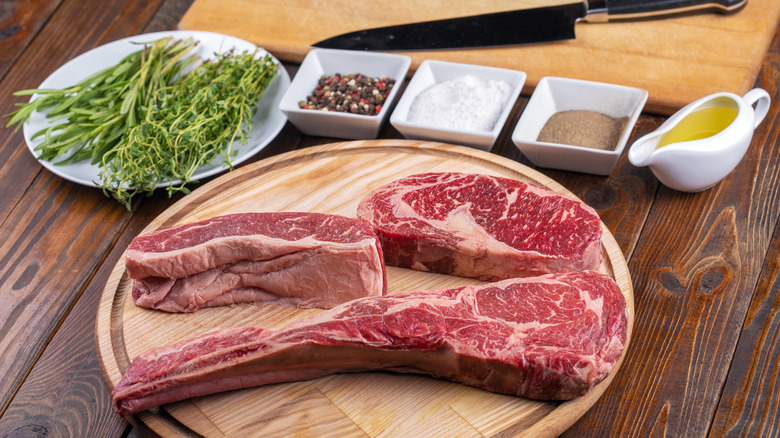The Reason Texas Roadhouse Steaks Taste So Good
We may receive a commission on purchases made from links.
If you're a fan of dining at U.S. steakhouse chain restaurants, you may wonder what the secret is to making the meat taste so good time after time. In the case of Texas Roadhouse, it's all about a special seasoning added before the steak is cooked. This gives the beef a rich, robustly savory yet sweet, smoky flavor as well as a great crust.
Not seasoning properly is a key mistake to avoid while cooking steak. While you can simply use salt and pepper to boost the natural beefy flavor, steakhouse rubs tend to also contain a mixture of herbs, spices, and other ingredients to really take the taste to the next level. If you're keen to know what's in the Texas Roadhouse blend, you're in luck. The brand's official seasoning is listed on Amazon (though it's unavailable for sale) — and it offers a description of the ingredients.
The items mentioned in the sirloin seasoning include sugar, salt, dehydrated garlic, dehydrated onion, monosodium glutamate, spices, paprika, turmeric, and soybean oil. Although some of the specific spices are not listed, they could possibly include chili powder or cayenne for heat, and black pepper for spice and extra depth. If you wanted to make your own version, it would be great for seasoning burgers, chicken, or vegetables as well as steaks — and you can customize the blend by adding a few extra ingredients, too.
Make your own steakhouse seasoning with pantry ingredients
The simplicity of Texas Roadhouse's steak seasoning means you probably have many of the ingredients in your pantry. The best salt to season steak with is coarse salt; it helps to enhance the savory taste of the meat as well as develop a good crust. Since it's a primary ingredient listed in the rub, use a tablespoon of it, along with the same amounts of granulated sugar, and ground black pepper. For the other spices mentioned, try half a tablespoon of each – though you can always alter the proportions according to personal taste — you may prefer less of the garlic powder and onion powder if it feels too punchy, for example.
As for the monosodium glutamate, the stigma that the umami-enhancing ingredient is bad for you is one of the biggest myths surrounding MSG. The FDA claims adding MSG to foods is "generally recognized as safe," and it's something that also occurs naturally in some foods such as cheese and tomatoes.
If you prefer a more fragrant, aromatic note to your steak seasoning, try adding dried herbs such as thyme and rosemary. Alternatively, incorporating ground coffee is Gordon Ramsay's pro tip for flavorful steak. Whatever you add, store the seasoning in an airtight container, and you'll have an instant flavor boost on hand every time you fire up the grill.


